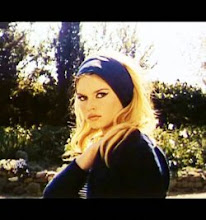
date watched: May 2, 2009
location: Film Society of Lincoln Center
part of the "Red Diva" series featuring films of Soviet actress, Lyubov Orlova
The film obviously owes more to its silent film predecessors: the use of slapstick comedy, musical numbers, and circus performances, for example.
Back then, and even now, filmmakers always had this fascination with the circus. I can think of Wings of Desire (1987), many of Fellini's films, and Lola Montès (1955), all of which featured the circus setting. I guess it's the one place we can all relate to, having been there as children, and the sense of awe and fantasy related to it. It's the one place that freaks and beauties co-exist, and has a surrealistic quality, which always makes for a good movie.
The funniest thing about this film is its obvious propagandistic slant, which comes unexpectantly at the end. The film follows Marion Dixon (played by Lyubov Orlova), who escapes the United States and finds herself in Moscow. She is under the tyranny of a cruel circus manager, who uses her only weakness to control her and use her as his main featurette. She falls in love with another circus participant, and in order to prevent further development in their relationship, the evil circus manager brings to the crowd her black child, which was the reason for her escape from America. The audience does not react in the way the circus manager wanted them to--with ease. They all exclaim, "what's the tragedy?" and passes the child from member to member, singing lullabies to him and cradling them in their arms. The circus owner remarks, "Here, we don't care whether the child is white, black, or red, striped like a zebra, or with polka-dots. We accept everyone." Clearly, this is the "U.S.S.R good, America bad" campagin that was required in order for the film to be released. Then the entire cast goes out into the streets, carrying pictures of Stalin and singing about how great their country is. It was really quite funny, as you can imagine.
Aside from the unintentional comedic aspect, I imagine a lot of money and time went into the sets and costumes, which were very fancy for its time. I even witnessed a moment in which the rain on the outdoor glass lamps melted into rain hitting the window--experimentation without being too over-the-top, I'd say. All in all, it is one of those films that will remain in your memory, despite its blatant propaganda. I especially liked the way it ended with letters hanging from hot-air balloons. I have a penchant for dirigibles and hot-air balloons.

No comments:
Post a Comment